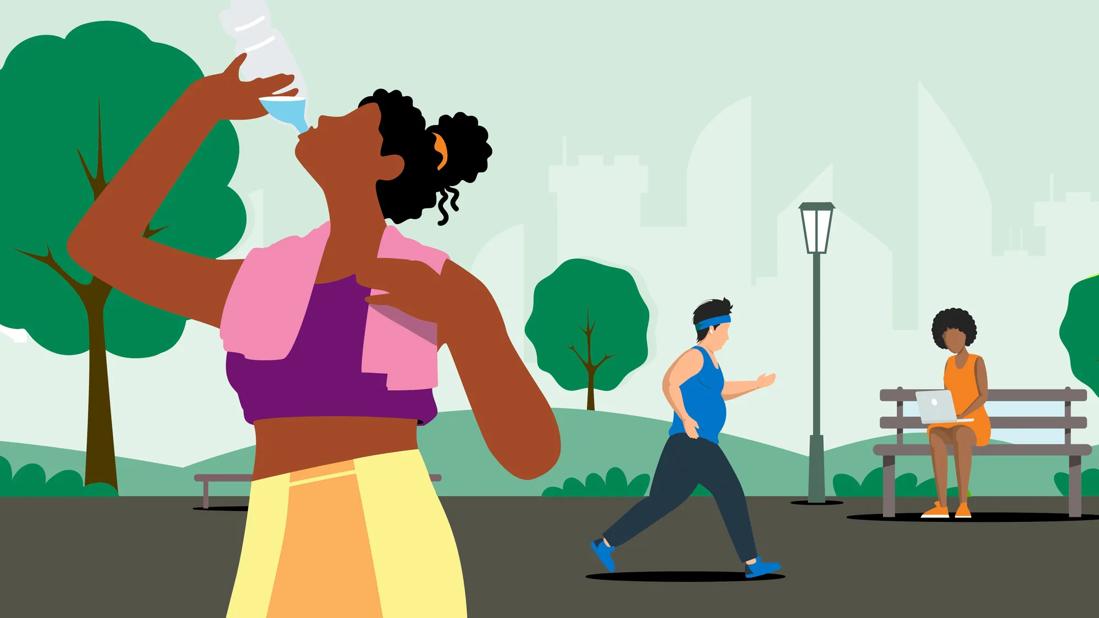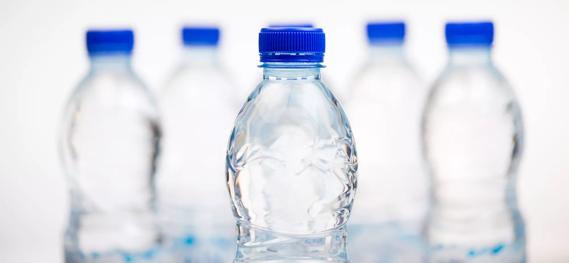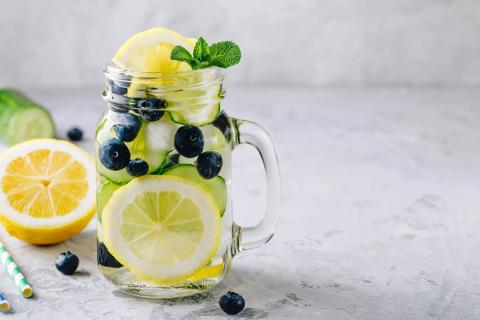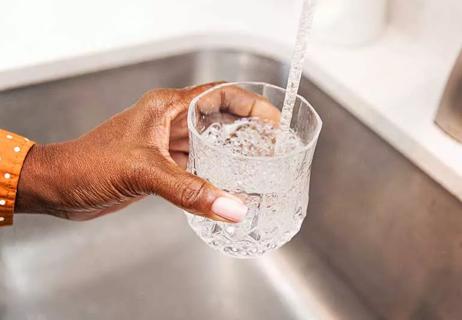Consumption needs vary based on activity, weather, metabolism and other factors

Water may not be the most exciting beverage in a world of iced mocha cappuccinos and matcha teas, but you literally can’t live without it. So, how much water should you drink a day? Let’s dive into some numbers.
Advertisement
Cleveland Clinic is a non-profit academic medical center. Advertising on our site helps support our mission. We do not endorse non-Cleveland Clinic products or services. Policy
The Academy of Nutrition and Dietetics recommends sipping down the following for daily fluid intake:
But consider those numbers a starting point. Your size, metabolism, location, diet, physical activity and health all factor into how much water you need to drink per day, says family medicine specialist Saadia Hussain, MD.
That’s a lot of information to gulp down all at once, right? Well, here’s a drip-by-drip accounting.
To determine how much water you need, Dr. Hussain suggests considering these four factors:
But water demands are also like the stock market, with daily fluctuations that depend on:
Advertisement
Water is sometimes considered a fourth macronutrient, joining the list with protein, fats and carbohydrates. It’s required for your body to function optimally. (Fast fact: Your body is 60% water.)
“That’s why it’s so important to drink enough water every day,” states Dr. Hussain.
Drinking water can help:
There’s also research that shows consuming enough water may enhance exercise performance, assist with weight loss, and reduce allergy and asthma symptoms.
Don’t assume you’re drinking enough water even if you're not thirsty. Instead, take a peek at your urine, advises Dr. Hussain. If it’s a pale yellow color, you’re right on track. If your urine is darker or has a strong odor, then you could probably use more fluids.
Other symptoms of mild to moderate dehydration might include:
More severe dehydration constitutes a medical emergency that requires immediate attention. Severe dehydration can include the symptoms mentioned, as well as:
Drinking too much water is hard to do, but it’s possible. Hyponatremia, or low sodium, can be caused by several things — but one of them is when people drink too much water over a relatively short period of time.
“This condition can be quite serious but it is extremely rare,” says Dr. Hussain. “It’s pretty unusual that anyone would drink so much water that they would actually hurt themselves.”
So, what’s the best way to make sure you’re drinking enough water without getting out measuring cups? Try to focus on sipping water regularly throughout the day, Dr. Hussain suggests.
Advertisement
That’s some of the rationale behind the familiar recommendation to drink eight 8-ounce glasses of water per day. (In reality, that number is somewhat arbitrary and not rooted in scientific evidence.)
Beverages such as milk, tea, coffee, juices and sports drinks count toward your daily fluid intake goal, too. But don’t overdo it on sweetened drinks with added sugar, and try to limit caffeine (a diuretic that encourages your body to shed fluid.)
“Staying hydrated is one of the most important things you can do for your overall health,” says Dr. Hussain. “It’s an easy way to help your body run like it should.”
Advertisement

Sign up for our Health Essentials emails for expert guidance on nutrition, fitness, sleep, skin care and more.
Learn more about our editorial process.
Advertisement

A glass of lemon water in the morning can help with digestion and boost vitamin C levels, and may even help get you into a better routine

Mold and bacteria in your reusable water bottle can cause health issues like infections, respiratory issues and allergic reactions

Sitting in the dry heat may help reduce stress, improve heart health and relieve pain

Adding salt to your water isn’t going to have measurable benefits — but there may be plenty of downsides

Drinking untreated water can have dangerous consequences, like bacterial infections

Although it adds to your hydration, this water may be pushing you over the limit of the daily recommended dosage of caffeine

If you’re trying to drink less soda or fewer sugary drinks, flavored water can be a delicious and healthy alternative

Your home’s tap water should be safe to drink, but you can install filters and run tests to be sure

Even small moments of time outdoors can help reduce stress, boost mood and restore a sense of calm

A correct prescription helps your eyes see clearly — but as natural changes occur, you may need stronger or different eyeglasses

Both are medical emergencies, but they are very distinct events with different causes